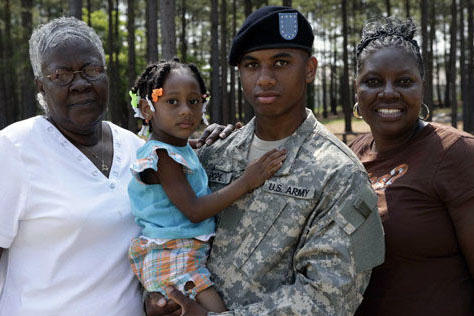If you're the person closest to your servicemember, he'll probably entrust you with some important documents and designate you as his emergency contact. This is the time to become as organized and knowledgeable as possible about the details of deployment.
Assemble a Deployment Binder
When your servicemember prepares to leave, she'll have numerous legal documents and financial matters to tend to and finalize (for example, creating or updating a will, handling all life insurance policies, and creating a power-of-attorney document). There are several checklists at the end of this section to help you and your servicemember get started in addressing some of these issues.
Whoever is left in charge of your servicemember's affairs during the deployment will find himself or herself responsible for several important legal documents. Some families create "deployment binders" that contain banking and housing documentation, deployment orders, call lists for the rear detachment commander or family readiness group, life insurance policies, passports (even for infants), as well as the servicemember's will. Keeping these documents stored in one place and easily accessible can save valuable time and allow for an informed response to any unforeseen contingencies.
Know Your servicemember's Chain of Command
You may already have a basic awareness of how the military works, but truly understanding the rules, regulations, and culture can spare you a lot of confusion down the road. Get to know your servicemember's chain of command and understand who will be the commander left behind as a unit point of contact. Familiarize yourself with the website and contact information of the command as much as you can.
Understand the Language
If you aren't already familiar with military-speak, you might want to take a look at this site, which allows you to browse military terms: www.dtic.mil.
Yellow Ribbon Program
If your servicemember is a part of the Reserves or National Guard, you should be aware of the Yellow Ribbon Program. This is a support network for the family members of deploying National Guard and Reserves that provides network activities to boost morale and welfare, provides family members with access to support services in time of need, and enables family members to become involved in the lines of communication with deployed unit members. For more information, go to www.yellowribbon.mil.
Child Care
If you're a single parent who is deploying, or if you and your spouse are both deploying and have children, you'll need to create a viable family care plan for those who will be assuming responsibility of your children during deployment.
"I am her mother, taking care of her special needs child. That is really hard. She makes sure that we are taken care of. She pays all the bills."
—Army mother
In addition, for the stay-at-home parent, having someone to care for your child during deployment so that you can get errands done, spend some time with friends, or have your hair cut is also important. Plan ahead to find a few different babysitting options before the deployment. One resource is the Sittercity Military Program, which is a free service for military families, through a partnership with the Department of Defense. The Sittercity Military Program provides a free subscription to find quality babysitters in your local area. Visit www.sittercity.com for more information and to register. (At this time Sittercity offers the free service to Army, Navy, Air Force, and Marines—the Coast Guard is not included.)
"My children are toddlers and this will be the first time they are going to fully understand that Daddy is away. I'm still working through that one, but I have been starting to leave my children with a babysitter to get them used to being away from us."
—Air Force spouse
Emergencies
As difficult as it may be, try to prepare for the worst-case scenario. Identify people on whom you can rely for immediate support in the event of an emergency and keep a list of their contact information by the phone. This way, you can prevent scrambling for support when you are already compromised emotionally. Make sure you have your servicemember's Social Security number and full unit information readily available, and that the point of contact in your servicemember's unit knows how to reach you. Just as important, make sure that you have a point of contact that you can call, should an emergency occur—to pick up your children from school, come and support you in person, and a variety of other actions that might be needed in the case of an emergency.
This excerpt is provided courtesy of the acclaimed free digital resource "Everyone Serves." Download your free copy with additional media content today at everyoneservesbook.com.


















